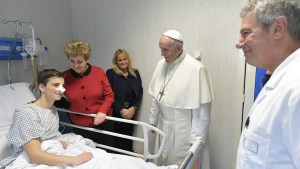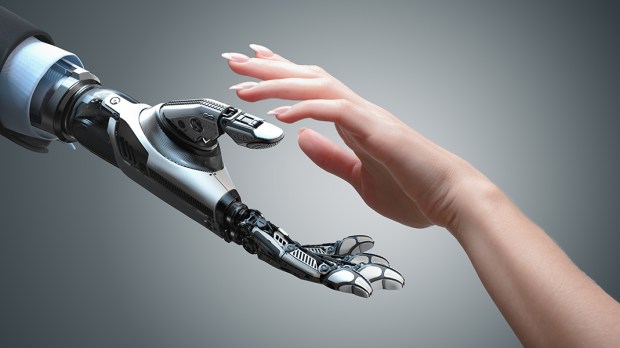Chris Gastmans, professor of medical ethics at the University of Leuven (Belgium) and a member of the Pontifical Academy for Life, says it is important to explore “the ethical dimension” of the use of robots since their expanded use is “inevitable,” especially in the field of personal care.
Gastmans was one of the speakers at a seminar on robotics organized at the Vatican in late February and I.Media for Aleteia spoke with him on that occasion. The interview is condensed here.
Why were you selected among the participants in this symposium?
Gastmans: As a member of the Pontifical Academy for Life, I am president of the group that is specializing in robotics and ethics. I’m also researching robots with social intelligence, and how they work with the elderly.
[The symposium gives a] general overview of the importance of thinking about the use of social robots as assistants in caring for the elderly — not only at why it’s important to look at the subject, but also the origins of that question. Not to mention the social context, of course: the growing number of births on the one hand, and the other the decreasing number of health professionals.
In the medical field, are robots the future of man?
Gastmans: The aging of the population is a major demographic challenge and requires more caregivers, which will likely be lacking in years to come. In this context alternatives need to be explored, and one of these options is indeed the use of robots. We must of course explore the ethical dimension of the use of these robots.
In principle, I am neither for nor against robots, but I recognize that their evolution and increased use is inevitable. In the field of health, robots are becoming more and more important, especially in surgery. Moreover, they aren’t only playing a role in the field of health or caring for the elderly. Robots are used in many other spheres of society: in factories, transportation, automation, etc. They’re becoming more integrated in our lives.

Read more:
With love, respect, acceptance, says pope, the “dark shadow” of euthanasia disappears
Are there certain ethical risks to this evolution?
Gastmans: When we talk about robots, we aren’t limited only to those that perform technical tasks, but also to those, for example, that are able to “communicate” with the elderly. In this context, we can consider robots as a nurse’s assistant, helping them in their task, or conversely as their replacement. As a result, future nurses could be robotic. From another point of view, they make it possible to fight against social isolation or to reduce depression.
Does the Vatican have answers to these ethical questions in robotics?
Gastmans: It’s important that the Vatican bring a critical vision to this development. One of the things that ethics must do is to turn a critical eye towards research to see if that progress can be used without hurting human dignity. Also, to prevent any misconduct that may endanger human dignity. This is the role of ethics, and this task also falls to the Vatican.
If the use of robots is ethical, it will also influence our way of thinking about human beings, our anthropology. It’s important for the Vatican to see how much the inclusion of robots in human rights affects our presuppositions.

